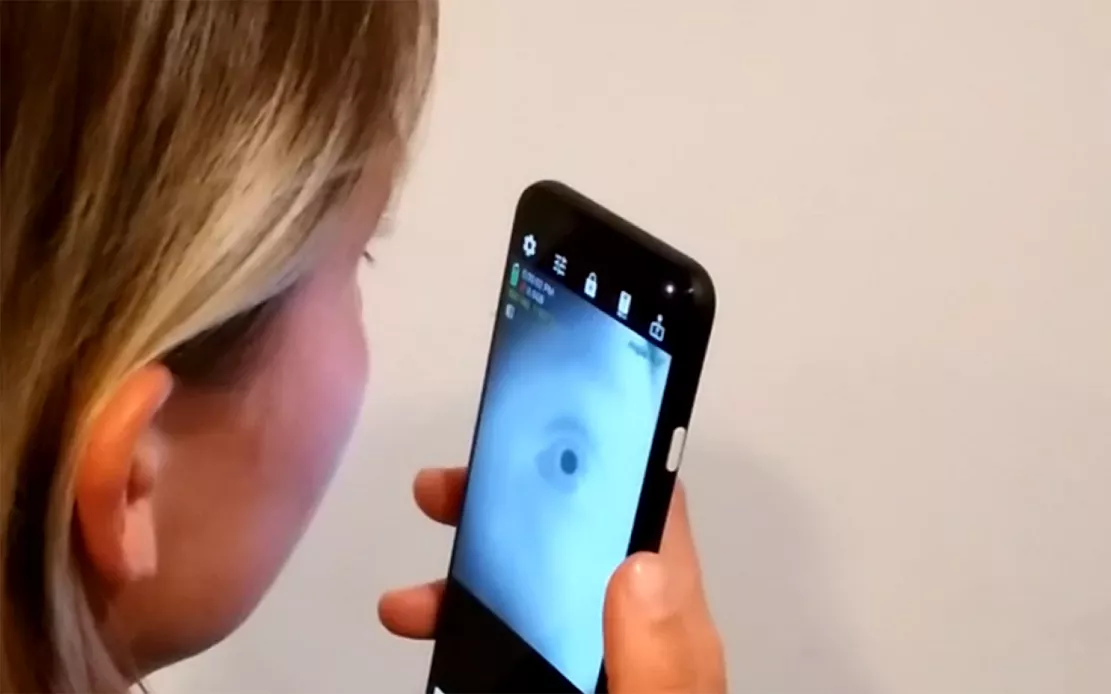A Prototype Smartphone Application Has Been Developed For Screening The Earliest Stages Of Alzheimer's Disease The Application Achieves This Goal By Tracking Small Changes In A Person's Pupil Size, Which Previous Studies Have Shown Can Indicate Preclinical Neurological Diseases
In 2019, A Team From The University Of California, San Diego, Demonstrated How The Pupil Response Test Can Identify Alzheimer's Patients With High Genetic Risk. The Test Involves Closely Tracking Changes In Pupil Size When A Person Completes A Cognitive Task.
The Idea Stems From The Discovery That One Of The Brain Regions That First Showed Alzheimer's Degeneration Was The Ventricle. This Brain Region Plays A Crucial Role In Controlling Pupil Dilation. Early Studies Have Shown That Subjects With Mild Cognitive Impairment Have Greater Pupil Dilation When Completing Challenging Cognitive Tests Than Adults With Cognitive Health.
Eric Granholm, One Of The Authors Of The 2019 Study, Worked With A Team Of Computer Engineers At The University Of California, San Diego To Study Whether They Can Use Modern Smartphones( ?site_id=242986&euid=&t=https://shouji.jd.com/ ) Camera Technology To Accurately Collect Pupil Dilation Data. This Collaborative Effort Led To A Prototype Smartphone Application Designed To Be Easily Used At Home.
"A Scalable Smartphone Assessment Tool That Can Be Used For Large-scale Community Screening, As A Minimally Invasive And Inexpensive Test To Help Detect And Understand Diseases Such As Alzheimer's Disease, Can Promote The Development Of Pupil Response Testing. This Could Have A Huge Public Health Impact," Granholm Said
It Is Understood That This New Application Uses The Near-infrared Camera In Many Modern Smartphones. Combined With The Data From The Smart Phone Color Selfie Camera, The Application Can Effectively Record The Pupil Size With Sub Millimeter Accuracy.
In Order To Make The Application As User-friendly As Possible, The Research Team Worked With Some Elderly People To Develop A Simple Interface To Accurately Complete The Pupil Response Test In The Home Environment. This Includes Designing A Cheap Plastic Accessory And Putting It On A Smartphone So That Users Can Put Their Eyes In The Right Position And Let The Camera Record The Pupils.
"By Testing Directly With The Elderly, We Learned How To Improve The Overall Usability Of Our System And Even Help Us Innovate Solutions For The Elderly, Making It Easier For People With Different Physical Limitations To Successfully Use Our System," Explained Edward Wang, An Engineer Working On The Project, "When Developing Technology, We Must Go Beyond Using Functionality As The Only Measure Of Success And Understand How Our Solutions Will Be Utilized By A Very Diverse End-user."
The App Is Still A Prototype, So Don't Expect To See It On Smartphones Soon. The Next Step Will Be To Validate The Application In Patients With Mild Cognitive Impairment And Ensure That Its Measurement Results Are Useful For Identifying Patients With Preclinical Alzheimer's Disease.
Colin Barry, The Lead Author Of The Paper On The New Study, Said: "although There Is Still Much Work To Be Done, I Am Excited About The Potential Of Using This Technology To Bring Neurological Screening From The Clinical Laboratory Environment To The Home. We Hope This Opens The Door To New Exploration Of Using Smartphones To Detect And Monitor Potential Health Problems Earlier."

